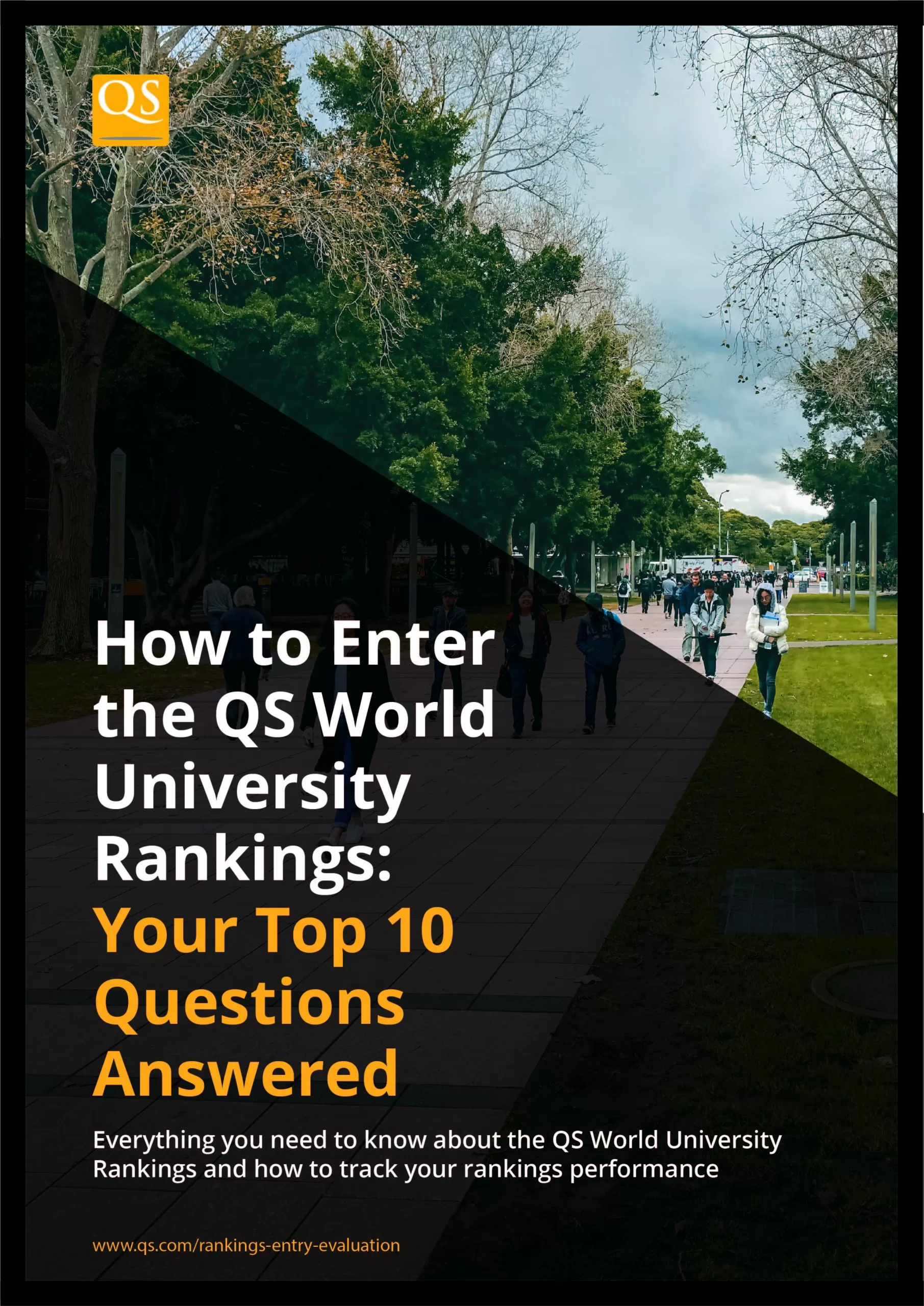
Trying to enter the QS World University Rankings but not sure where to start?
In this white paper, we’ll cover the top 10 questions institutions ask when trying to enter these global university rankings, including:
- How did the QS World University Rankings start?
- What are the different rankings out there and what does this mean for me?
- What are the benefits of being included in the rankings?
- What base requirements do I need to meet to get on the rankings?
- Why hasn’t my institution appeared in the rankings before?
- How are the rankings calculated?
- Where does QS get its rankings data from?
- What standards would I have to meet for research output and impact?
- What are the main areas I should focus on to dramatically improve my chances of entering the rankings?
- Where are the rankings heading in the future? How are they evolving?
Fill out the short form to download your free copy of the white paper now.



